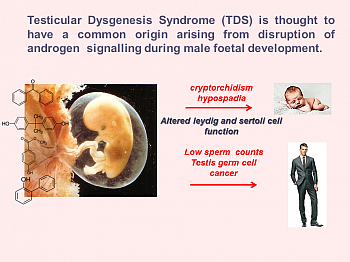
The alteration of hormonal signalling as a result of exposure to endocrine disrupting chemicals (EDCs) at critical stages of foetal development has been postulated as a possible factor causing reproductive dysfunction in the neonate or later life. Some EDCs demonstrate androgen receptor antagonistic activity and many of these compounds have been detected in human tissues or biofluids. However a concerted search for androgen receptor active compounds in these human samples as not yet been undertaken. In order to undertake such studies, we have developed analytical method was developed to profile the receptor mediated (anti)androgenic activities present in extracts of placenta samples.
Our work is in collaborations with Prof Nic Olea's group at the San Cecilio Hospital, University of Granada, Spain. A number publications on this work will be available in early 2013.
In other work on human health the Hill group are developing methods to profile a variety of metabolites present in urine which can be invetsigated as markers of health status and disease. Methods are being developed to profile trace quantites of prostanoids, steroids, lipids and other signalling molecules in urine extracts and to remove dietary metabolites from sample datasets in order to investigate metabolite profiles associated with disease or toxicity.

